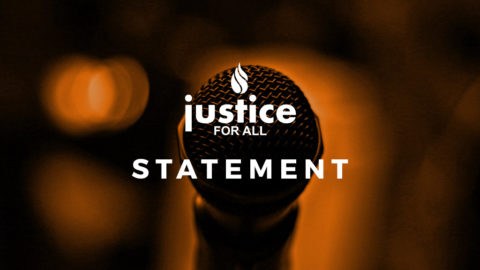Statement: Canada’s Investigation into India’s Transnational Repression and the Expulsion of Indian Diplomats October 18,…

Statement on India’s Disallowing of Eid Congregation in Kashmir
India’s violations of the religious freedoms of the Kashmiri Muslims continues unabated as on 22nd April, India decided not to allow Eid-ul-Fitr prayers at the historic Jamia mosque in Srinagar. This is the fourth year in a row that the Eid prayer was disallowed by India in the mosque that has been central to the religious life of the Kashmiris for centuries.
A large gathering of worshippers who had made their way to the mosque were sent back by the heavy military personnel outside the mosque. The Imam and chief-preacher of the mosque, Mirwaiz Umar Farooq, also remained under detention at his house. He has been under house-arrest since August of 2019.
This denial of religious freedom to Kashmiri Muslims came a few days after the Indian government announced the extension of a Hindu religious pilgrimage in Kashmir, known as Amarnath Yatra, from 43 days to 60 days. The Yatra shall commence in the month of June and end towards the end of August. Thousands of Hindus shall make their way to the valley for the Yatra. The Yatra is used by the Hindu nationalist government as a stick with which to beat the local Kashmiri Muslim population. During the Yatra, the pro-freedom Kashmiris are put behind bars, the right to movement and congregation of the local Muslim population is severely curtailed, and militarization is exponentially increased. Kashmiri traders and truck drivers are denied access to the highways, and shopkeepers are made to close their businesses in case the Yatra passes through their locality.
The denial of religious rights, such as gathering on Eid, to Kashmiri Muslims, and the protection of the religious activities of the Hindu population, on the other hand, reflects the Islamophobia and Hindutva that is integral to India’s rule in Kashmir.
Imam Abdul Jabbar, the Kashmir Action team lead, in his statement, strongly condemned acts of Indian occupation administration to strangle religious rights of Kashmiri Muslims by denying them to perform Eid prayers in congregations and allowing Amarnath Yatra. According to him, this is a manifest proof of the colonial-settler plan of the Hindutva-based Indian government. He emphasized that the global human rights organizations must condemn religious violations of the Indian authorities in Kashmir by voicing their strong protest, and by taking action to prevent such violations from taking place in the future.


